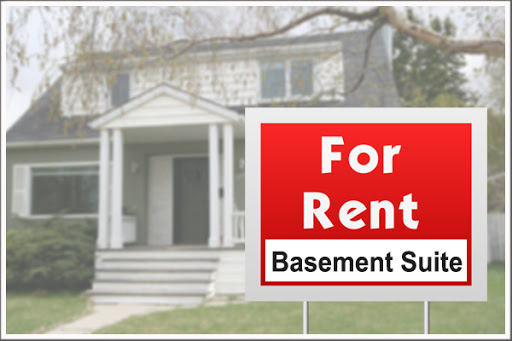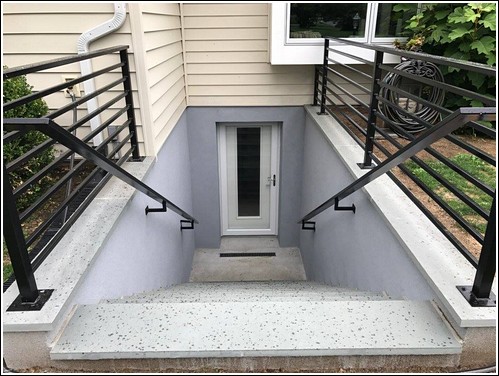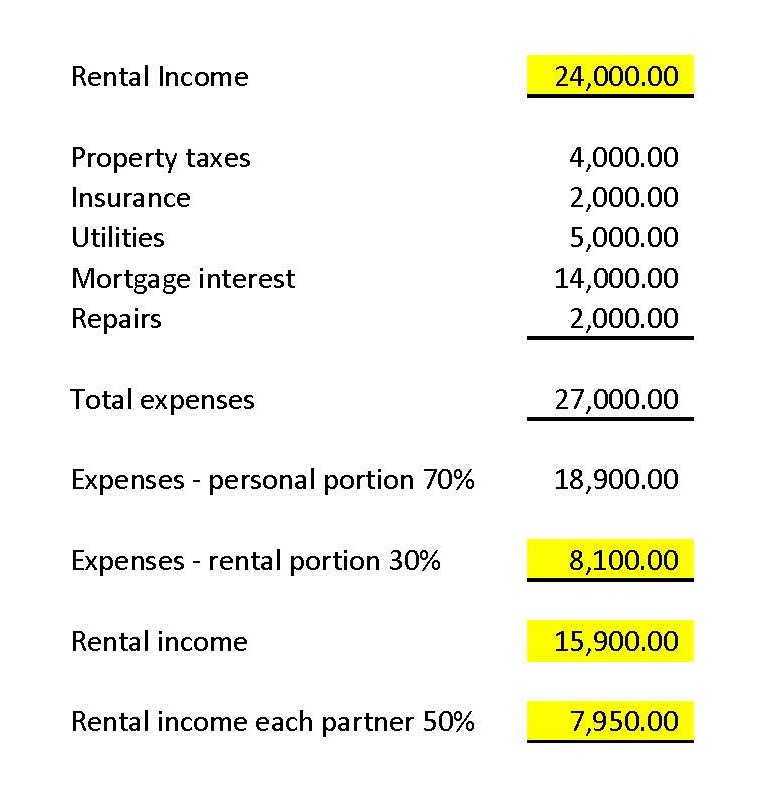GTA’s real estate market has been very expensive for many decades and it is often very difficult to get into the market, and as we wait to save more the price increases tend to outpace the savings. In the last 20 years the price corrections have been few and far between, with few hiccups along the way the prices are going from expensive to even more expensive.
One way to get into the market is to find a place with a rental basement potential, yours truly have done it with our first house back in the day, and this article is aiming to explain the pros and cons.
I have previously written about buying first investment property, and being a first time home buyer, this article to a certain degree combines these topics and expands on them further, I think that if you have a chance to read all three blogs it will give you a better picture and understanding of the process, pros and cons, of buying the property with basement rental potential as a first time home buyer.
Which properties have rental basements potential?
The properties you should be looking for are the once with a separate basement entrance. In a vast majority of cases new builds don’t have them, they were quite common for the houses built in the 70s or earlier. You will have detached, semis and end unit townhomes to chose from.
You could also consider properties which are not completely set up for rental yet, but can be easily converted. Anything can be done but major changes to the house not only will be expensive, but can also have tax consequences, we will discuss it later.
What can easily be done should be discussed with a professional contractor based on the floor plan of the particular property, for example adding a kitchen may not be very difficult if the plumbing is already there, same with a bathroom. Adding a wall to create bedroom is not difficult in itself but you will need to run electric wires, install outlets, ducts etc.
Adding side entrance in itself is a structural change to the house, and in many cases can involve adding stairs on the inside of the house, cutting through floor joists and so on, that is a big job.
Don’t forget about the permits required for the renos.
The bottom line is if you are interested in rental basement buy a property that is ready, can be easily converted or set up, one that doesn’t require major structural changes.
Is there a price premium for these properties?
In short yes.
There will be some buyers who will not be interested in these type of properties (every property has those buyers), on the other hand there will be plenty of demand because you may have first time home buyers who will be relaying on the rental income not to be house poor, and that is the only way for them to get into the freehold market, investors will also be interested since they will be renting out basements as well as the main floor which are much better investments than buying a property with one rental unit, and the regular buyers who like the area and the house who don’t plan to rent it out and use it themselves.
Should I sell this house in 5 years or less?
I get asked this question very often, basically for the majority of first time home buyers buying a house with basement rental is a way to get into the market, and not a dream home, it may be the only way to avoid paying rent, a stepping stone into a forever home down the road.
IMO real estate works best when considered as a long-term investment, the costs to buy and sell are significant, the more frequent the buys and sells, the higher the costs, we are not talking here about buying and selling stocks for $6 per transaction.
If you want to live in the property for less than 5 years, it would be a great idea if your goal is to build the equity, use it towards the purchase of your desired home down the road, and keep this property as an investment property if you want to continue being a landlord. This way you will be an owner of your own home you always wanted, and your first home will be giving you rental income from the main floor and the basement. This makes sense.
Is this a good investment?
As long as there are no major issues with a house or a potential tenant, the answer is yes.
As I have mentioned above these types of properties do very well in resale, combine it with a potential rental income, as long as you can get it at a reasonable price and don’t encounter major issues, such properties do very well in GTA.
Privacy, or lack there of.
Having a rented basement is a great idea, but it’s not without the drawbacks, having owned such property in the past, having tenants in the basement as well as being a tenant in the basement at some point in my life I can attest, privacy is an issue especially for someone who is noise sensitive and likes the privacy.
First off you will have strangers on your property all the time, they will have guests, cars will be parked, cooked food will have an aroma.
More importantly IMO is the noise. Freeholds are wood construction and unlike high-rise condos which are built with concrete, they transfer noise very well. Majority of the houses were not designed to be multi unit properties and soundproofing was not a concern when building. The worst is ceiling to floor noise transmission. Basically, what you have is plywood, floor joists every 16 inches, drywall on the ceiling and hardwood or carpet on the main floor. In addition, you also have ducts which transmit noise even better. The bottom line is in a typical house you can hear everything, conversations, children running, TV, I don’t want to go into too many details as to what you will hear, basically everything (use your imagination). The tenants living in the basement are even more affected because they hear every step, every time a child or a pet runs, accidentally dropping a spoon or any other small object on the floor doesn’t sound like much, except if it’s in the middle of the night and you live underneath. That’s one of the main reason tenants move out quickly and don’t want to live in a basement for a long time.
Can the ceiling be soundproofed?
Yes, with a certain amount of money anything can be done, in some cases it’s easier, in others it’s difficult and costly.
If you purchase a property with a finished basement you are not likely to be ripping the drywall to do the soundproofing, you are more likely to do so if the basement is unfinished, there are certain products such as Rockwool safe and sound, acoustic channels, sound proofing drywall, double drywall on the ceiling, that will greatly help with a transmission of a certain type of noise.
The biggest issue actually are the ducts.
You can do all the soundproofing you want but if you have the same ducts heating the main floor as the basement, all other sound proofing will be all for nothing. Imagine you have one duct that runs from the furnace all the way to the back of the house and it splits up to go the main floor bedroom and down to heat the basement bedroom. You will hear everything despite soundproofing everything else. If you can run separate ducts to your basement apartment you will be able to soundproof the apartment properly.
There may be some other solutions I am not aware of, however I know that if you can achieve proper soundproofing it will help keep your sanity and enjoyment of the property, tenants will be happy if they can’t hear you, and you may get a bit more in rent if you can show the potential tenants their unit is properly soundproofed, not to mention improve the resale value.
Make the inconvenience less inconvenient.
This is a bit of a follow up on the previous point, since you will be sharing your house with strangers consider making it as convenient as possible for you and your tenants.
I would suggest paying attention to the driveway and laundry hook up.
You don’t want to have one lane driveway and be forced to move the cars every time someone comes or leaves, that would be a huge pain in the neck.
Each unit should have their own laundry, sharing with others will simply create issues (cleanliness etc) especially if you must enter the basement apartment in order to do your laundry.
Driveway can be widened (although it may be illegal in your municipality) and laundry can be added especially if the rough in already exists.
Basement ceiling height.
Pay attention to the ceiling height, not only the minimum height is a requirement for the basement dwelling to be legal (may differ in different municipalities, Toronto is 6 feet 5 inches), it will also affect how many tenants will be interested in the property, and how much you can charge.
Low ceiling may not bother shorter people, but anyone who is taller than 6 feet will want something that is at least 7 feet high, 8 feet would even be better, the lower the ceiling, the lower the potential rent.
Basement access only from the outside.
There are houses that have access to the basement only from the outside, if you as a main floor occupant want to access the basement, you need to go outside first. If that is the case it won’t make much of a difference when you are renting out the basement, but if you don’t want to rent the basement out it will be less convenient for you to use, and the pool of buyers may be limited when you decide to sell it. Fortunately, most homes have direct access to the basement from the main floor, this set up is the most flexible.
Legal v illegal basement apartment.
Distinction between legal and illegal basement apartment has nothing to do with reporting rental income to CRA, it is related to having the basement approved by the city as a legal dwelling. The rules affecting legalizing basement apartments differ from one municipality to another, in some areas legal basements are not permitted, in others they are easy to obtain, yet other areas allow for it but have very strict criteria. Legal basements are the once which passed safety inspection (for example large enough windows to exit, fire preventative measures installed such as fire-resistant door, drywall etc) as well as other requirements such as number of parking spots available.
Legal basement apartment increases the value of the property.
What are the consequences of renting out an illegal basement apartment? Let’s face it, many basement apartments are not legal and have been rented for many years without issues, why would this potentially present a problem? All it takes is one neighbour to complain to the city about too many cars parked on the property, or too many people living in the house, and the city can shut down your rental operation. It can also create issues with the insurance company if something goes wrong, god forbid there is a fire in the illegal basement suit, the insurance company may cancel the coverage and not cover the damages.
Insurance.
Advise the insurance company you have a rental basement, it may increase your premiums, but imagine if something tragic happens and you withheld this information from the insurance provider? They may cancel the coverage, not pay to cover the damages etc. Best to call the insurance provider and talk to them about their requirements for the rental basements before making the purchase.
Tenancy laws.
When you are renting a separate basement apartment the same tenancy laws apply as if you were renting out the whole house, or a condo. The Ontario’s laws are some of the most pro-tenant and you should familiarize yourself with them. Not all tenants create issues, most are good people and good tenants, it’s the bad once and the horror stories that make the news, you don’t want to be any part of that. You will also need to pay a lot of attention to screening the potential tenants, selecting the right once to share the same roof as you is of utmost importance.
Below are some helpful websites you should visit.
Tribunals Ontario – Landlord And Tenant Board.
Help selecting the right tenant.
Income tax reporting.
When you are renting out the basement or any part of your house, it must be reported on your personal income tax using form T776.
Let’s look at a typical scenario, you and your partner own a detached two storey house (50% ownership each) and you are renting out a basement, it’s estimated that the basement is 30% of the square footage of the house, you don’t have a separate utility meters for the basement and you pay the total utilities.
Form T776 will have different lines for the expenses you can claim, let’s assume the rental income for the year was $24,000 (12 x $2K per month), your annual property taxes are $4,000, insurance is $2,000, utilities $5,000, the total mortgage payments are $30,000 of which $16,000 is principal repayment, and $14,000 is interest, repairs are $2,000.
You will enter all these figures on the tax return except the $16,000 principal repayment.
As you can see from the table above only the portion of expenses allocated to the rental property can be expensed. There are some expenses which could be 100% such as tenant insurance, because these are due to having tenants and no portion of these is personal.
You can also see one major benefit of renting part of your house, the majority of the expenses don’t increase because you have tenants, you are paying the same out with or without tenants, but you can reduce the tax liability by the portion of those expenses proportionate to the portion of the property that is rented out.
PRE – Principal Residence Exemption.
As you are probably aware, your principal residence is exempt from capital gains tax when you sell it, or have a deemed disposition.
When you are renting parts of your house you don’t lose that exemption, but you must be careful.
Here is where I will suggest speaking to tax specialist to ensure that you don’t lose the PRE on the part of the house you are renting, and partial change of use doesn’t occur.
CRA’s position has been that if the rental use of the property is ancillary in relation to its use as a principal residence, you don’t make any structural changes to the property to accommodate the rental suite, and you don’t claim depreciation on the rental portion of your home, you will not lose the principal residence exemption on the whole or a part of the property.
Prior to March 2019 one could have made election for the change of use of the whole property and avoid the deemed disposition if all requirements have been met, the election was not available for the partial change of use. In March 2019 CRA introduced the 45(2) or 45(3) election for the partial change of use.
This is a complex topic and I urge you to contact a tax professional for the advice.
Summary.
Buying a property with rental basement potential is a great way to get into the market, and subsidize your income, but it doesn’t come without compromises, inconveniences and stress. I am hoping this article will provide some insight into the process, what to expect, and what to look for to avoid major disappointments.
Please feel free to ask any questions you may have.







Post a comment